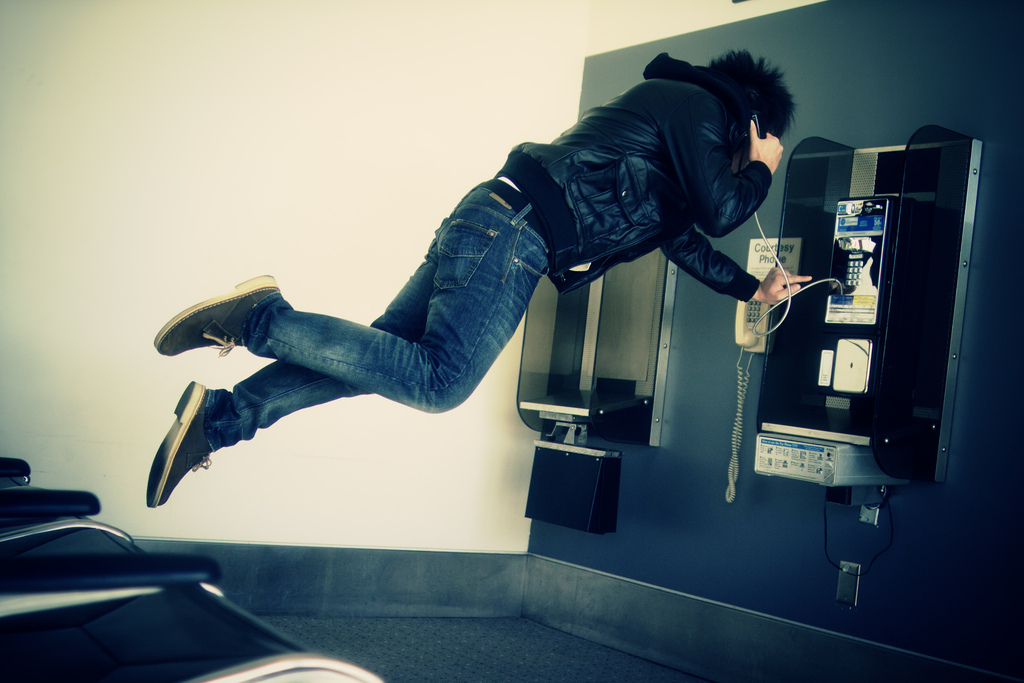The Federal Communications Commission (FCC) is proposing that airlines be permitted to allow their passengers to use their mobile wireless devices, such as cellphones, to make voice calls, send text message and access the internet while flying above 10,000 feet. This proposed rulemaking has put some frequent flyers on edge – they worry that obnoxious phone calls could ruin the inflight experience. There’s a good chance, however, that such concerns are unnecessary. Here’s why.
It’s Up to Airlines, Not the FCC, whether Passengers Can Make Calls
The FCC’s ruling will determine whether using wireless devices inflight is technologically safe, not whether airlines themselves should allow passengers to use wireless devices. Even if the FCC decides to lift the current inflight ban on wireless devices, it will be up to airlines whether or not to permit phone calls, texting and internet access.
Some airlines have already made it clear they will not allow inflight voice communications, regardless of any FCC rule changes. Delta wrote in a February 7 letter to the FCC:
Regardless of the outcome of this rulemaking, Delta will not allow mobile wireless calls or internet-based voice communications on Delta or Delta Connection aircraft in flight. Delta’s research and customer feedback tell us that most passengers, and especially frequent flyers, believe that voice calls in the cabin during flight would be major annoyance and a serious disruption to the air travel experience. A clear majority of customers who responded to a 2012 survey said they felt the ability to make voice calls on board would detract from—not enhance—their experience.
If you don’t want voice calls to be permitted inflight, tell it to your airline, not the FCC.
An Airline-Controlled Connection
If airlines are indeed permitted to allow inflight mobile connections, airlines will have to install special wireless access systems onboard to connect passengers’ devices to wireless networks. Such a system would resemble the Wi-Fi services available onboard many aircraft today.
This means passengers would have to connect to mobile services through airlines rather than through their existing wireless providers. As meager as modern U.S-based airline services are, it’s likely that mobile connections will be far from free. A mobile services paywall could limit the number of passengers who take advantage of the inflight wireless connection as well as the amount of time they spend using it for potentially disruptive tasks like voice calls.
Inflight Calls Have Been Available for Years
It wasn’t long ago that AirFone and Air One allowed passengers to make phone calls while inflight. In fact, many of the inflight calls made by 9/11 victims were made using these services. Airfone and Air One have since been discontinued, however, after their services fell out of popularity.
As CNBC points out, many airlines currently allow inflight voice calls on international flights. Emirates, Virgin Atlantic, Transaero, Etihad and Scandinavian Airlines all offer voice calls through AeroMobile – and U.S. users make up a large chunk of AeroMobile subscribers. According to CNBC, U.S. subscribers made up about 20% of connected passengers on U.S-bound AeroMobile flights and talked for over 33 hours inflight using AeroMobile in November 2013. Virgin Atlantic is also testing an inflight voice service that allows a maximum of six users to make calls at a time in an effort to limit disturbances to passengers.
If passengers are already making voice calls without causing other passengers to grumble, maybe allowing mobile connections during domestic flights wouldn’t be so devastating after all.
Ultimately it seems the fate of wireless device during flights, especially for voice calls, will be determined primarily by customer demands and whether airlines find it profitable to offer wireless connections. Even if passengers are able to make voice calls during flight, it’s likely that paywalls, a general lack of interest and courtesy will limit the calls and prevent them from becoming annoying. I hope so, anyway!
For more information on the proposed rule, visit the FCC’s Q&A page. You have until Friday to comment on the proposed rulemaking and until March 17 to respond to others’ comments.
What do you think: do you want the FCC to approve access to mobile wireless services onboard aircraft?
Featured image by felixtsao



